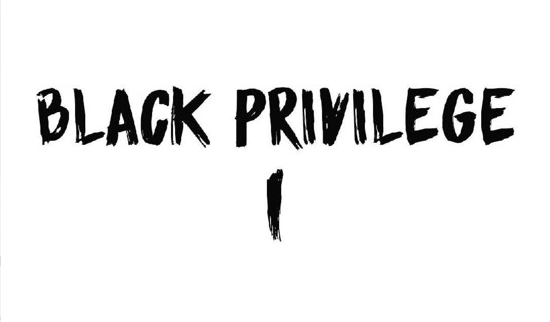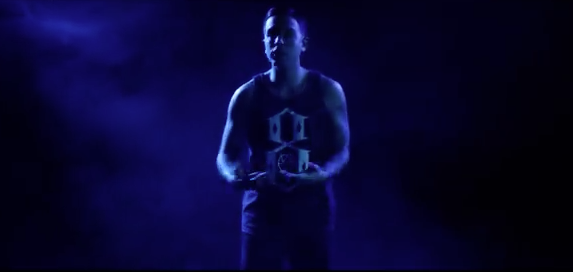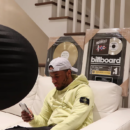Written by I.S. Jones @isjonespoetry
Crystal Valentine, former Youth Poet Laureate and author of her first book Everything Is Not A Eulogy, introduced me to the term “black privilege” with her stunning work. While the term is meant to be ironic because of America’s painful, jagged history with race and Black bodies, it is also intended to confront the exhaustion of being Black in a country that has actively hated Black and POC (people of color). Sometimes I hear, especially from White people, that “not everything is about race”, and yet one must understand not only is this dismissive comment inherently false and irresponsible of those who have privilege, but this line of diction seeks to erase a necessary and uncomfortable dialogue which must take place if we are to ever actually transcend “above race”. For some of you this may be beating the dead horse, but: Being privileged is not necessarily the problem and privilege does not always mean having fair-skin, “good hair” and monetary comfort. I have educational privilege, middle-class privilege. My high school never had a gun problem or metal detectors in them. I obtained my Bachelors without much headache aside from the actual studies themselves. I’ve never been homeless or gone to bed hungry. I have never lost a family member or friend to drug addiction or gun violence. A lot of my peers would say I am smart or articulate. These are privileges that many will never be afforded in their lifetime. So there is a base understanding: privilege is defined as a “special right or rights, advantages, or immunity granted or available only to a particular group of people”.
The true issue is not acknowledging your privilege or not using it to benefit others who are systematically disadvantaged.
I often have this conversation with my colleagues about Black artforms—poems / spoken word, visual art, hip-hop, etc—and if we exploit our tragedies for monetary gain or likes for the gram. Is that even possible? I ask because I go back and forth with myself on that. I own my rage, my anguish, my sorrow, my confusion, my contempt. These things are mine. These things were pulled out of me as a result of White power structures that were created without me (or people who look like me) in mind; they were created off the backs of Black folk. The oppression and the limiting of opportunities for POC is what sustains these powers structures. If Black people are privileged nothing else, we are privileged to being loud about what hurts, but can it be done in a way that trivializes its severity…? This is one of the many concerns I have with the song “Black Privilege” by emerging hip-hop artist ANoyd.
One of his latest singles “Black Privilege” dissects the racial struggle our generation is facing—the Black Lives Matter movement that has been immensely critical of constant police violence. The song, while it brings up necessary topics, doesn’t do much to actual open up a real conversation:
“Ya'll don't gatta work as hard, Ya struggle lenient, /
Since when is mediocrity considered genius? /
If I was white you'd probably notice that I'm breathing, /
I'll go viral overnight sipping leaning and gun speaking /
The f**k can I do for y'all to hear me? /
It's too uneven, my brown skin make you listen at yo convenience, /
I put my hand on my heart and you'd probably shoot me in it /
and this is why I never said the pledge allegiance, /
justice for all right?”
[soundcloud url="https://api.soundcloud.com/tracks/245367145" params="color=ff5500&auto_play=false&hide_related=false&show_comments=true&show_user=true&show_reposts=false" width="100%" height="166" iframe="true" /]
The first two lines is in reference to the term “white mediocrity”, one of things privilege which is afforded to White people. If you need an example of what “White Mediocrity” truly looks like, see: Abigail Fisher or #staymadabby. This is why Black Excellence isn’t just a saying but a requirement; Black people must do everything in excellence, be much more efficiently or we will perish. “Ya struggle lenient” means while white people, like anyone struggles, they will never have to deal with the struggle of being discriminated in the housing market or denial of a job over skin color. They will never have to deal with the prejudices of “being ghetto” or the patronizing “compliment” of being articulate. The rapper equates mediocrity with genius in relations to perceived assumptions of whiteness; here the rapper notes white people can do the bare minimum amount of work and still become immensely successful, which actively negates the “bootstrap theory”. Such theory in essence supposes that anyone can and is capable of lifting themselves out socio-economic dispersity with some elbow grease and the sweat of your brow; this does not work if one does not have the metaphorical boots or even shoelaces. Black people, and anyone, can work like a horse until death but without the proper tools and real opportunities to pull oneself out no mobility is possible. This is so ingrained into America ideology that Black people are often called “lazy” when they are on government assistance, but White people can considered “going through a rough economic patch” or “down on their luck”.
As the rap unfolds, we are given other gems to help us understand the lyric’s meaning:
"Don't lie to my face like this sh*t is all right
The top rappers in my state are all white,
And please don't take this the wrong way 'cause all of 'em could spit,
success they got is just going to take Noyd longer to get,
Got my inner n***a feeling we suffered too many losses,
do we got to go back to the million marches?
I was that little boy surfing always searching Martin Luther
teacher snatched my mouse up."
The praise and backlash Macklemore has received for his song “White Privilege” created an unintended effect; instead of people focusing on the message of his music and recognizing the importance of his work, there is far too much focus put on the rapper instead of what he’s saying. I want to believe Macklemore was sincere in his intentions and aware that a great amount of his success has come to him from being White, but that isn’t enough and neither is this song. White rappers are more than welcome to be a part of the hip-hop movement because they have contributed a great deal, but they must be humble as they are entering a genre that now became cool and more acceptable as a result of marketability and commercial success. Hip-hop was started as a way for Black youth to express themselves in a healthy way against the backdrop of a neglectful government system. And let us have this conversation about “unjust murders” by the hands of police: regardless of what you believe has happened regarding the accounts of unarmed Black folk, what they did or did not do didn’t warrant them being executed like animals.
ANoyd isn’t saying anything new or rather what he does define as “Black Privilege” should been expounding upon even more because they were brushed over and it’s a real shame of some potentially compelling work:
"listen yo Black Privilege my grandmother barely got any wrinkles,
Black Privilege being able to call yo homies yo n*as,
Black Privilege being able to loot when I feel unjustified
/ Sag my pants off my a and have my timbs untied
/ Black Privilege, Black Privilege"
Breakdown:
Black Privilege is living to see old age
Black Privilge is to burn down the masters house
burn down the storefront that calls whites customers
but me a thief
Black Privilege is saying fuck your respectability politics
and how that is a determiner for my worth.
This is the most important part of the song, and I feel as though ANoyd didn’t go hard enough to make this as good as it should have been.
The lyrics that I have the most problem with are the following:
"Come to think of it I was feeling just like Obama
'cause the white people like "Keep that n***a in office" you get the point,
We scream black lives matter what about black crimes?
But they don't kill us as much as we kill our own kind
. We bash each other and say we considerate.
Only join hands when they kill us then back to the
distance, we hate to see each other win ain't to fond of assisting quick to be negative to the blacks that's making a difference"
“We scream black lives matter what about black crimes?” I am really over people using this as an excuse to devalue the rage Black people feel about police brutality. I get the argument here: “Why is it that Black people being killed by police and neighborhood assailants generated the Black Lives Matter movement, but not “black-on-black crimes”? The same could be said about White people (who actually kill more of their own significantly more than Black people do). I’m not trying to shift blame, but to say Black people have no right to their rage regarding a system that is supposed to protect them exposes you as a problem. Stop. Does the Black community have a lot of problems? 1000%. However those problems, while we as a people must solve them, we are not entirely the cause of these problems. You don’t have to agree but to loosely quote Neil Degrasse Tyson “The great thing about the truth is that is it still the truth whether you like it or not”.
Overall, the song is presenting a lot of issues that have already been brought up: “if I was white, it would be easier” “black on black crimes so we can’t be mad at whites” and other issues about racial tensions that we’re dealing with. The issue I have with this song is what the lyricist defines as “black privilege”. Those things are not substantial enough privileges, even if they were being satirical. But more importantly, the song doesn’t bring up anything new, doesn’t address the issues at hand in an original or thought-provoking way. While it is true that this piece would not have been written if not for the song, I don’t really see where the song is controversial to be quite honest with you all.


![[Audio] "Take Two" - Al Maralen ft. Innanet James](http://upcominghiphop.net/wp-content/uploads/2016/02/Screen-Shot-2016-02-22-at-8.30.18-AM.png)
![[Video] "These Days" - Chris Borelli](http://upcominghiphop.net/wp-content/uploads/2016/02/Borelli_8703-1.jpg)
![[Audio] "Changes" - P.MO (Prod. By Mike Squires)](http://upcominghiphop.net/wp-content/uploads/2016/07/Screen-Shot-2016-07-05-at-4.57.35-PM-350x320.png)
![[Video] "Wonder If You Wonder" - Witt Lowry](http://upcominghiphop.net/wp-content/uploads/2016/03/Screen-Shot-2016-03-28-at-8.17.14-PM.png)
![[Audio] "Posh Posse" - Vee Skeeno](http://upcominghiphop.net/wp-content/uploads/2016/02/Screen-Shot-2016-02-22-at-8.08.39-AM.png)
![[Photos From Last Night] Everything Grand at the Sherman Showcase](http://upcominghiphop.net/wp-content/uploads/2016/07/IMG_9019-130x130.jpg)





